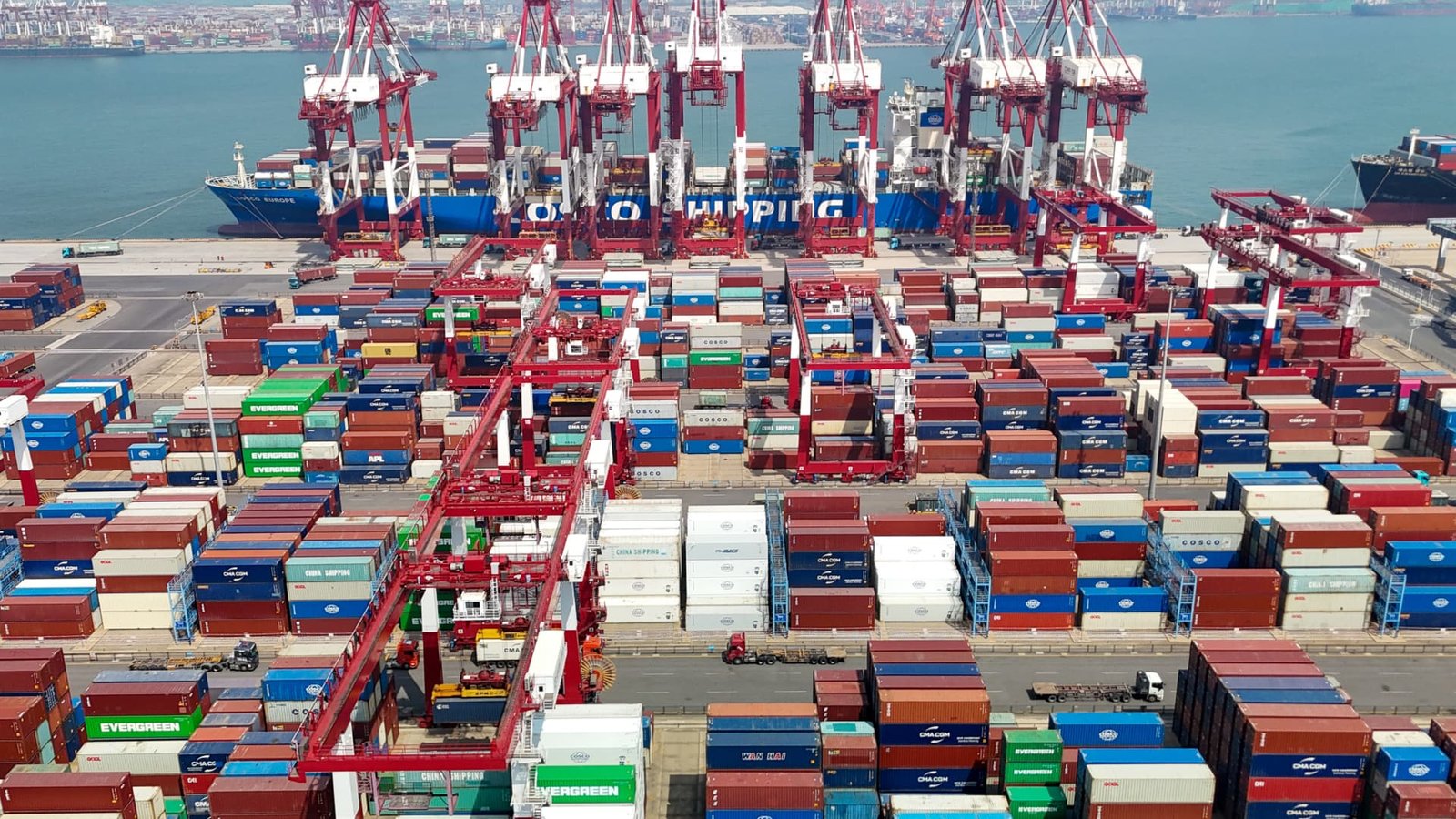The rail-mounted crane transports goods at the cargo yard of the Qianwan United Container Terminal of Qingdao Port in Qingdao City, Shandong Province, China.
Nurphoto | Getty Images
Businesses are finding a workaround to minimize the most significant hit from tariffs, using a decades-old piece of legislation known as the “first sale rule.”
Within U.S. customs law, the first sale rule allows U.S. importers to use the price of the first sale in a number of transactions to calculate customs duties.
For instance, a Chinese manufacturer sells a t-shirt to a Hong Kong vendor for $5. That Hong Kong vendor then sells the t-shirt to a U.S. retailer for $10. That U.S. retailer then sells the t-shirt to consumers for $40.
Under the first sale rule, the U.S. retailer can pay the import duty on the initial $5 price of the good, rather than the vendor’s inflated $10, thus stripping out the cost associated with the middleman’s profit.
“What the rules allow you to do is use that initial sales price from the factory to the vendor to determine the final duty price,” Brian Gleicher, senior lawyer and member at Miller & Chevalier Chartered, told CNBC over the phone.
Moncler flagged the first sale rule as providing “significant benefit” to its cost structure.
The industrial cost … is much lower than the retail price … it’s a significant benefit.
Luciano Santel
executive director & chief corporate and supply officer at Moncler
“First cost [sale], of course, the industrial cost … is much lower than the retail price, and it is about 50% of the intercompany price. So, of course, it’s a significant benefit,” Luciano Santel, executive director & chief corporate and supply officer at Moncler, told investors during an April 16 earnings call.
Swiss-headquartered biotech Kuros Biosciences earlier this month said that it was altering its operations, which would allow it to adopt the first sale policy.
“What we will now do is we will switch in between Zurich as a wholesaler hub… which in essence means we can adapt the so-called first sale method,” Daniel Geiger, chief financial officer of Swiss-headquartered biotech Kuros Biosciences, said during a May 13 earnings call.
During first-quarter earnings calls, U.S. BBQ-maker Traeger and manufacturing firm Fictiv also both cited first sale as “supply chain mitigants” and means to “minimize tariff and duty costs,” respectively.
Use of the first sale rule, while perfectly legal, nevertheless could undermine the Trump administration’s efforts to boost tariff revenue and boost onshoring of manufacturing.
The White House did not respond to CNBC’s request for comment on use of the first sale rule and its implications for tariff policy.
U.S. Customs and Border Protection said it could not provide data on the recent use of the first sale rule by importers.
— CNBC’s Ganesh Rao contributed to this report.



